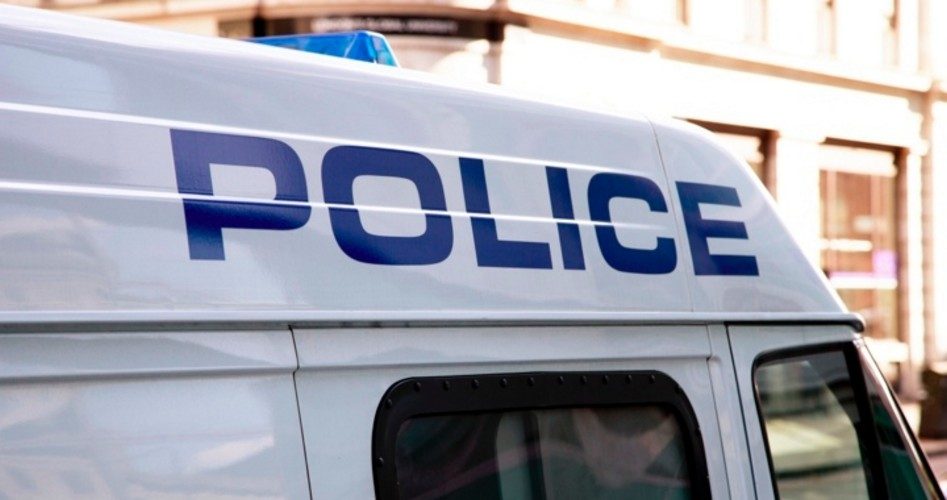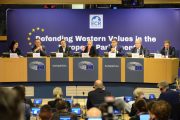
There’s a knock on your door. Upon responding, you see two police officers who inform you, “We’ve come to inspect your firearms and look over your place, sir.” In a land known for onerous gun control and even proposals for knife control, this has become a reality for lawful gun owners in a move critics decry as excessive government control.
That land would be Britain, where, writes The Register’s Gareth Corfield:
The Association of Chief Police Officers (ACPO) has announced a legal tweak intended to allow police officers to turn up at the homes of gun owners, without warning, and demand to inspect guns stored on the premises. A new Crimestoppers hotline is also in operation to encourage people to dob in gun owners they suspect of wrongdoing. However, as even the police themselves admit, gun crime is falling.
Coming in the form of an amendment to the Home Office Guidance on Firearms Law, as spotted by the Shooting Times, the change explicitly authorises police forces to turn up and conduct unannounced spot checks on law-abiding gun owners.
As you likely guessed, “dob in” is U.K. lingo for “snitch.”
Ostensibly, the new guidance was issued over concern that certain members of Britain’s small and already over-regulated shooting community may be “vulnerable to criminal or terrorist groups.” But many who may receive visits “cannot understand why they would be targeted and suspect it is to discourage gun ownership in Britain,” writes Andre Walker at Breitbart.
The actual update to the Home Office guidance reads:
Where it is judged necessary, based on specific intelligence in light of a particular threat, or risk of harm, the police may undertake an unannounced home visit to check the security of a certificate holder’s firearms and shotguns. It is not expected that the police will undertake an unannounced home visit at an unsocial hour unless there is a justified and specific requirement to do so on the grounds of crime prevention or public safety concerns and the police judge that this action is both justified and proportionate.
And on what basis will such intrusion be “judged necessary”? This is where the Crimestoppers snitch-line, which has been instituted, say authorities, “to encourage members of the shooting community and the general public to report any concerns about legally held firearms,” comes into play. As Walker reported:
Chief Constable Andy Marsh [the national policing lead for firearms and explosives licensing] told ShootingUK: “The public and especially the shooting community can greatly assist the police in gathering intelligence and protecting our communities by being vigilant around firearms licensing.
“The shooting community is close, and will recognise sudden behavioural changes in fellow shooters that could cause concerns. However, they may not feel like they can act and the Crimestoppers hotline empowers people to voice concerns anonymously.”
He added: “If you are concerned that guns are being kept insecurely or notice signs that shooters may be vulnerable to criminal or terrorist groups or have shown sympathy towards extremist acts, please report it.”
But critics worry that the snitch number — “already dubbed the ‘busybodies’ charter,’” Corfield tells us — is rife for abuse. Whether it was alleging heresy or witchcraft in the Middle Ages, or anti-government sentiment in Nazi Germany or the Soviet Union, historically, informing on others has often been driven by personal grievances and vindictiveness.
Not to worry, though, say supporters of the new measure. Corfield tells us that “in a Twitter message seemingly endorsed by Hampshire Crimestoppers” people are told, “RT @robinedwardscla: Police visits to legal gun owners begin http://po.st/zJLeHN via @shootinguk — why worry if you have nothing to hide!” Why? Perhaps because, as Ayn Rand noted, “The only power any government has is the power to crack down on criminals. Well, when there aren’t enough criminals, one makes them. One declares so many things to be a crime that it becomes impossible for men to live without breaking laws.”
Yet this new guidance is just the latest in what appears to be a full-court press against Britain’s remaining gun owners. As ShootingUK’s Alastair Balmain writes:
This latest move follows on from the introduction last year of Operation Solitaire, a community engagement project which is, according to the police, “aimed at reducing the vulnerability of those with legitimate access to firearms, to using these weapons illegally.” The operation’s target audience includes people who have “regular interaction with holders of firearms and shotgun certificates.”
Police firearms enquiry officers and neighbourhood officers have visited shooting clubs and registered firearms dealers in recent months to highlight concerns surrounding the potential for terrorists or mass killers to exist within the shooting community.
One gun club member recently wrote in an online forum for armed services personnel that his personal experience of the Operation Solitaire initiative was: “the crappiest attempt by the plod at getting us to grass each other up as lone wolf killers.”
Meanwhile, warning of ideological migration from U.K.’s Home Office to the home front, many observers point out that Britain’s policies are on America’s anti-Second Amendment activists’ agenda. Barack Obama, for instance, has cited the U.K.’s firearm restrictions as an example for our nation. And Hillary Clinton, often touted as a 2016 presidential favorite, voted against the 2006 Vitter Amendment, which prohibits the funding of the confiscation of lawfully held firearms during disasters. She also said in a March 3, 1996 Booknotes discussion with Brian Lamb that she was “a fan of a lot of the social policies that you find in Europe.”


